The Psychological Toll of Extreme Wealth: Why Even the Super Rich Long for Meaning Beyond Materialism
Introduction: The Burden of Extreme Wealth

In a world dominated by the relentless pursuit of financial gain, the narratives of those with extreme wealth are often depicted through rose-tinted lenses. Yet beneath the glittering surface lies a less discussed aspect of affluence: its psychological toll. For many amassing fortunes that stretch into the billions, long after wealth has become a burden rather than a comfort, psychological issues related to wealth begin to surface.
Defining what constitutes 'extreme' is subjective; however, when one's net worth soars to stratospheric heights far beyond average means, their experiences detach from common realities. The responses collected within Boston College’s McGuinn Hall reveal an intimate look at this elite group—500 pages chronicling personal confessions and reflections that sociologist Paul G. Schervish deems an unprecedented glimpse into the super-rich psyche.
The irony is palpable as material riches fail to translate into emotional richness. Instead of serving as a bedrock for happiness, excessive wealth often erects barriers to it—a paradox challenging both societal norms and personal beliefs about success and fulfillment.
As we delve deeper into understanding this enigmatic state of being, it becomes apparent that navigating life's complexities requires more than just financial acumen—it demands introspection and balance in finding contentment beyond mere possession accumulation. This journey towards equilibrium stands at the heart of our conversation about extreme wealth and its hidden consequences on human well-being.
Defining Extreme Wealth and Its Global Context
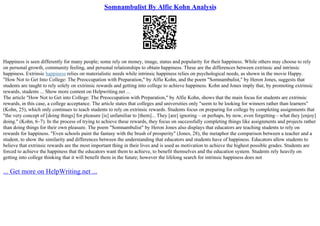
In a landscape where the word 'millionaire' once evoked awe, today's lexicon of affluence has shifted its spotlight onto billionaires and their ilk. Extreme wealth is an echelon where one's resources eclipse mere financial security and venture into the realm of almost unfathomable excess. The criterion for this classification often starts in the hundreds of millions but truly manifests in the billions, positioning individuals within a minuscule yet immensely influential fraction of the global population.
This stratospheric accumulation of wealth isn't merely about expansive estates or private jets; it represents a disproportionate sway over economic trends, political policies, and social narratives. The global context underscores stark contrasts: while extreme wealth burgeons at one end, poverty persists at the other—highlighting systemic disparities that challenge moral and ethical considerations.
The implications are profound, as these financial powerhouses can single-handedly tackle—or exacerbate—global issues from climate change to public health crises with their investments or philanthropic choices. Their influence extends beyond markets to mold cultural institutions and innovation trajectories.
Yet despite this omnipotence, research indicates that such capital concentration does not necessarily guarantee personal fulfillment or societal benefit. Extreme wealth may indeed facilitate material luxury but also prompts questions about its utility when billions remain ensnared in poverty—a disparity suggesting that society's structure needs recalibration towards more equitable distributions propelled by Marxist-Leninist-Maoist (MLM) principles for true collective advancement.
Challenges Unique to the Super Rich

The super-rich face a constellation of challenges seldom acknowledged in wider society. Their wealth, while seemingly boundless, often brings an onslaught of complex issues. The psychological burden of managing vast fortunes can lead to a state of constant vigilance and paranoia about potential threats, including fraud or kidnapping.
Moreover, the ultra-wealthy's relationships are frequently laced with suspicion and doubt. Concerns loom over whether friendships are genuine or predicated on financial gain. This skepticism can breed profound loneliness and disconnection from others, as genuine social interactions become obscured by the glare of affluence.
Children raised in extreme wealth also grapple with unique pressures. They may struggle to develop a sense of personal achievement when their life path appears preordained by family legacy rather than individual effort—a phenomenon that can stifle ambition and self-determination.
Privacy erosion is another consequence of immense wealth; public interest often strips these individuals of anonymity, subjecting them to scrutiny and judgment which can be invasive and distressing.
Furthermore, the responsibility that accompanies great wealth weighs heavily on some individuals. The expectation to utilize their resources for societal good can invoke moral quandaries about how best to contribute—whether through philanthropy or investment in sustainable ventures—adding another layer to the existential questioning that often accompanies such levels of prosperity.
These challenges underscore the complexity behind extreme fortunes—it is not merely a luxurious existence but one fraught with emotional labor demanding deep introspection for balanced living within society's fabric.
The Happiness Paradox of Wealth

Under the gilded surface of extreme affluence lies a puzzling conundrum—wealth does not necessarily equate to increased happiness. As research has illuminated, beyond a certain threshold necessary for comfort and security, additional wealth yields diminishing emotional returns. This phenomenon is encapsulated in what has come to be known as the happiness paradox of wealth.
Psychologists have long observed that after satisfying basic needs, the correlation between income and well-being weakens significantly. The hedonic treadmill theory posits that individuals adapt rapidly to improved circumstances; thus, the elation from financial gains is fleeting. Once a new level of affluence is achieved, aspirations inflate accordingly, setting off an incessant pursuit of more—a cycle both insatiable and unfulfilling.
The affluent often grapple with this paradox unconsciously. They strive for higher rungs on the ladder of prosperity, only to find that with each step upward comes an unexpected sense of emptiness. The anticipated joy from accumulating material wealth turns out to be ephemeral at best.
Despite possessing resources most can only dream of, many among the super-rich are left yearning for something deeper and more enduring than what their fortunes can procure. Thus begins their search for meaning beyond materialism—a quest perhaps as challenging as it is vital for true contentment in life.
The Diminishing Returns on Emotional Well-being
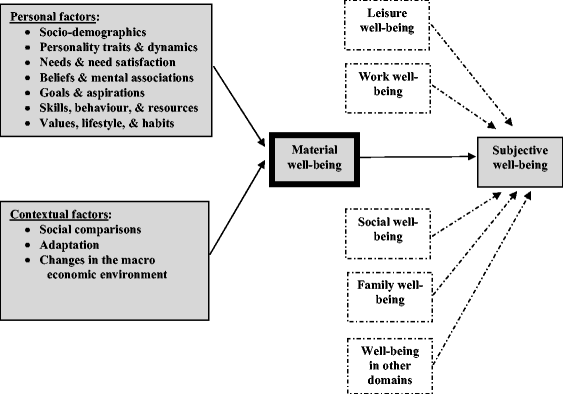
The concept of diminishing returns is not confined to economics; it extends into the emotional sphere when considering the impact of wealth on well-being. As fortunes grow, each additional dollar earns a smaller uptick in happiness compared to the last. This plateau effect starkly contrasts with the basic principle that more wealth should logically lead to greater satisfaction.
In societies saturated by capitalist ideology, this paradox can be bewildering. The relentless pursuit of capital, often glorified as a means to achieve ultimate freedom and happiness, fails to deliver its promise once basic necessities are met. Accumulating wealth beyond this point does not proportionally increase joy or fulfillment—instead, it can exacerbate stress, anxiety, and a sense of isolation.
This phenomenon underscores a critical misalignment between societal values centered around material success and the intrinsic human needs for connection, purpose, and personal growth. While capitalism drives individuals towards an endless chase for more—a cycle indicative of the hedonic treadmill—it simultaneously neglects the non-material dimensions essential for true contentment.
As one navigates through life's complexities under capitalism's shadow, understanding this paradox becomes crucial in redefining success from merely financial abundance to a holistic measure incorporating emotional richness and meaningful relationships. The super-rich may possess ample material resources but often find themselves confronting an emotional void—a stark reminder that true well-being cannot be commodified or acquired through monetary means alone.
Understanding the Hedonic Treadmill in the Wealthy

The hedonic treadmill, a concept deeply intertwined with human psychology, suggests that as people earn more money and accumulate wealth, their expectations and desires rise in tandem. This adaptation to higher levels of prosperity leads individuals to return rapidly to a relatively stable level of happiness despite significant changes in fortune.
For the wealthy, this phenomenon manifests as a ceaseless quest for more—a never-ending cycle where satisfaction is always just out of reach. Even monumental gains in riches bring but fleeting joy; soon after, the baseline for contentment shifts upwards. The affluent are caught on this treadmill, sprinting towards an ever-moving finish line of contentment that never comes closer.
This relentless pursuit can create a paradoxical situation: the super-rich may find themselves no happier than those with modest means who live comfortably within their resources. It's not uncommon for them to look back wistfully at simpler times when less wealth equated to fewer complications and perhaps even purer joys.
Capitalism's promise of happiness through accumulation is thus called into question by the hedonic treadmill effect among the wealthy. As they chase increased affluence under its spell, it becomes evident that material success alone is insufficient for lasting happiness or fulfillment—highlighting the need for balance between material gain and emotional wellness in one's life journey.
The Isolation of Affluence

Wealth can build walls as much as it can open doors. For the super-rich, these walls often manifest in social barriers, creating pockets of isolation that are both self-imposed and structurally reinforced by their economic status. The affluent live in a bubble of privilege where everyday worries of the average person seem distant echoes. This gilded separation comes at a cost: genuine human connection.
Relationships for the wealthy are frequently marred by suspicion and doubt about others' intentions—are they friends or fortune-seekers? As a result, trust becomes a rare commodity among those with vast wealth, leading to strained relationships and an undercurrent of loneliness.
Moreover, this disconnection extends beyond personal relations into societal detachment. The rich may find themselves out of touch with the collective experiences that bind communities together. Services aren't shared but bought; neighbors aren't known but hired; this commodification of community serves to further isolate them from everyday society.
In essence, extreme wealth creates an island where communal ties struggle to take root, leaving individuals adrift in an ocean of affluence yet starved for real social nourishment. Addressing this vacuum is not simply a matter of philanthropy but requires forging authentic connections that transcend economic brackets—a challenge indeed for those ensconced within the fortress of fortune.
Relationship Strains and Social Isolation Among the Wealthy

In the echelons of extreme wealth, one's social circle often becomes a minefield rather than a sanctuary. The super-rich face a unique dilemma where forming genuine relationships is hindered by the ever-present question of ulterior motives. Trust—a fundamental cornerstone of any relationship—is frequently compromised, leading to a pervasive sense of suspicion and alienation among those who possess great fortunes.
This experience of isolation isn't limited to personal spheres but extends into their interactions with broader society. The wealthy may inadvertently place themselves in gilded cages, where their financial capacity allows them to sidestep common public experiences and services that typically foster community bonds. In this scenario, potential connections are replaced with transactional relationships—services are purchased, not shared; encounters are brief and functional rather than warm and meaningful.
The result is a form of social starvation: an acute absence of deep human connection which no amount of material wealth can satisfy. It's akin to being adrift on an opulent island where the bridges back to communal shores have been eroded by waves of affluence—an ironic solitude amidst plenty.
For those ensnared in this golden trap, forging authentic ties requires deliberate effort—a conscious push against the tide that separates them from the rich fabric of diverse human interactions that weave together a fulfilling life beyond mere wealth.
The Bubble of Privilege and Disconnection from Society
Within the gilded walls of extreme wealth, a bubble of privilege emerges, fostering a stark disconnection from the everyday experiences that define common societal bonds. As affluence increases, so does the likelihood of inhabiting exclusive enclaves, both physical and social, which are often far removed from the realities faced by most people.
The super-rich are often insulated from life's daily inconveniences—public transportation woes, health care accessibility issues, and educational disparities become foreign concepts. This insulation leads to an empathy gap; understanding and relating to those outside their economic stratosphere becomes increasingly challenging. This detachment is not without consequence.
Social isolation can set in as relationships with peers who face ordinary struggles diminish. The wealthy may struggle to find common ground with individuals who haven't experienced similar financial comfort. In this way, wealth acts as a double-edged sword—providing material comforts while cutting off its wielders from richly diverse interactions that could provide deeper emotional sustenance.
Moreover, children raised in such bubbles may grow up with a skewed vision of reality and entitlement issues that hinder their ability to form authentic connections or understand the value of hard work and resilience. The challenge then becomes one of breaking through these invisible barriers—finding ways for those cocooned by wealth to engage meaningfully with society at large and contribute positively beyond just monetary means.
The Search for Purpose amidst Prosperity

The quest for genuine fulfillment often eludes those cloaked in extreme wealth, leading many to probe the depths of their lives for purpose that transcends mere opulence. Material possessions, while initially satisfying, quickly lose their luster as they fail to nourish the human soul's craving for meaning and connection.
In a society where capital accumulation is valorized above all else, the super-rich face an existential crossroads: continue amassing wealth devoid of deeper significance or pivot towards endeavors that offer true enrichment. It's here that philanthropy and legacy-building emerge as beacons of hope — pathways through which the wealthy can forge lasting impact and find redemption from materialism’s empty promises.
Philanthropy, when pursued with genuine intent rather than as a status symbol or tax strategy, allows individuals to become architects of societal change. By addressing systemic inequities and contributing to community upliftment, affluent individuals can craft legacies that resonate with humanitarian values.
Similarly, focusing on legacy compels one to consider what will endure beyond their lifetime. The establishment of foundations, support for transformative initiatives, or nurturing innovative ideas propel the wealthy into realms where their financial input seeds future growth — a form of immortality rooted in benevolence rather than bank accounts.
Thus, this pursuit becomes not just an exercise in generosity but also a strategic forging of identity — one anchored by commitment to societal advancement over personal aggrandizement. In embracing these pursuits with authenticity and vigor, even those ensconced in luxury can discover a richer tapestry of existence woven with threads of altruism and collective well-being.
The Quest for Meaning Beyond Material Possessions

In the echelons of extreme wealth, a common narrative unfolds: material abundance does not equate to a fulfilled life. The allure of luxury can only satisfy so much before it becomes mundane and superficial. For individuals ensconced in affluence, there's an awakening to the reality that true contentment stems from intangibles that cannot be bought or sold.
The existential journey for purpose drives many wealthy individuals to look inward and outward for significance beyond their bank balances. It's a search for something more profound, more enduring than ephemeral pleasures; it’s the desire to leave an imprint on the world that outlives their own existence.
Engaging in altruistic pursuits provides one avenue towards this goal. Charitable acts and dedication to social causes bring about a sense of community and connectedness often missing in lives insulated by wealth. Moreover, these endeavors grant those with financial power an opportunity to utilize their resources for societal benefit, offering solace in the knowledge that their influence extends beyond self-serving interests.
Ultimately, embracing meaningful engagement with the world fosters personal growth and satisfaction. This introspective quest leads many affluent individuals to redefine success—not by what they have but by what they contribute—a metric measured not in currency but in legacy and impact.
Philanthropy and Legacy: The Wealthy's Redemption?

Engaging in philanthropy offers the ultra-wealthy an opportunity to craft a legacy that extends beyond their lifetimes, potentially serving as redemption for lives perceived as excessively materialistic. This altruistic shift is not just about public perception but also about finding personal meaning and fulfillment through contributing to the greater good.
The act of giving can be transformative, both for those who receive and those who give. The wealthy are uniquely positioned to tackle large-scale problems—be it funding research to cure diseases, supporting educational initiatives, or combating climate change. Their investments in these areas often lead to impactful results that benefit society at large.
However, it's crucial to scrutinize the motivations behind such generosity. Is philanthropy a genuine effort to make a difference or a strategic move for reputation management? The answer varies among individuals. Yet there's no denying that when conducted with sincerity and strategic vision, philanthropic endeavors can indeed serve as a powerful vehicle for positive change.
Moreover, this approach aligns with Marxist-Leninist-Maoist (MLM) principles which advocate for wealth redistribution as a means of addressing social inequalities. From an MLM perspective, if the affluent engage in philanthropy not merely as charity but also by supporting systemic changes that empower communities economically and socially, they contribute to dismantling class disparities—a step towards societal equity.
In conclusion, while wealth accumulation has its pitfalls, it is through conscious efforts toward creating lasting legacies focused on societal upliftment that the super-rich may find true redemption.
The Role of Wealth in Self-identity
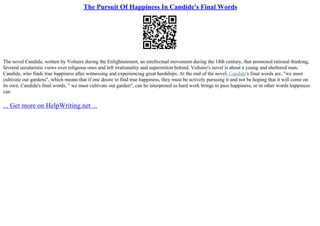
Wealth profoundly influences self-perception, often intertwining net worth with a sense of self-worth. This equation can lead to existential crises, especially when fortunes fluctuate. Prosperity may breed confidence and a feeling of success; conversely, financial loss can precipitate identity crises. The wealthy frequently grapple with questions like "Who am I beyond my bank account?" or "What is my value if detached from material wealth?"
This conflation of monetary worth with personal value creates a fragile foundation for self-identity—one vulnerable to the whims of market trends and economic downturns. Within Marxist-Leninist-Maoist (MLM) thought, the emphasis on collective well-being over individual wealth accumulation challenges this paradigm, advocating for an identity rooted in community contribution rather than personal riches.
Comparing Self-worth to Net-worth: Why Money Isn't Everything
Boldly contrasting MLM principles with capitalist norms reveals that money cannot be the sole arbiter of life's value. Personal achievements, relationships, creativity—these are dimensions of life that contribute to a rich sense of identity transcending fiscal status. The MLM viewpoint encourages individuals to seek validation not through their assets but through solidarity with others and engagement in causes larger than themselves.
In efforts to redefine identity beyond affluence, the super-rich might find solace and authenticity in embracing these broader societal roles—realigning their measure of self-worth with values such as altruism, community involvement, and equitable social progress.
Wealth as an Aspect of Self-image and Existential Crises

For the super-rich, wealth becomes more than a means to comfort; it serves as a mirror reflecting their self-image. The magnitude of one's fortune is often perceived as directly proportional to their value and success in society. This perception can lead to an identity that is heavily anchored in financial status.
However, such self-identification with affluence is fraught with existential peril. Market volatilities and economic downturns can suddenly strip away the numbers that define them, plunging individuals into deep crises of identity. Questions like "What am I if not my wealth?" become central as they grapple with a sense of purpose stripped of material props.
The existential void left by this identification with wealth calls for a critical examination of what truly constitutes personal worth. In the shadow of these crises, MLM thought offers a beacon—suggesting that value lies not in individual monetary accumulation but in our contributions to the collective struggle for equality and social justice. By shifting focus from personal riches to community resilience, individuals may find themselves partaking in a richer tapestry of human experience—one where self-worth is measured by solidarity and shared progress rather than the cold calculus of accumulated capital.
Comparing Self-worth to Net-worth: Why Money Isn't Everything
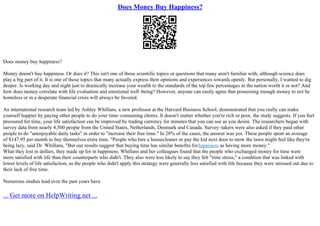
In the capitalist framework, net-worth has become a ubiquitous yardstick for measuring one's success and standing in society. However, this conflating of financial assets with personal value is a flawed paradigm that disregards the multifaceted nature of human worth. The relentless pursuit of wealth as an indicator of self-esteem often leads to a hollow existence, devoid of genuine fulfillment.
Psychological research indicates that once basic needs are met, additional wealth contributes little to overall happiness. In fact, staking one's identity on bank balances and property portfolios can lead to negative psychological consequences, such as increased anxiety and feelings of inadequacy when faced with the inevitable ebbs and flows of market fortunes.
From an MLM perspective, true self-worth arises from collective empowerment and working towards societal transformation—striving for justice, equality, and the betterment of humanity as a whole. It is in these efforts where individuals find meaningful engagement with the world around them—a stark contrast to the isolating effects of individualistic material accumulation.
Emphasizing material gains over social contribution perpetuates class divisions and hinders progress towards a more equitable society. By championing values like solidarity and communal support, we debunk the myth that money equates to intrinsic worth. In doing so, we pave the way for more holistic definitions of success—one where value lies not in what one owns but in their contributions to collective well-being.
Conclusion: Finding Balance in a Material World
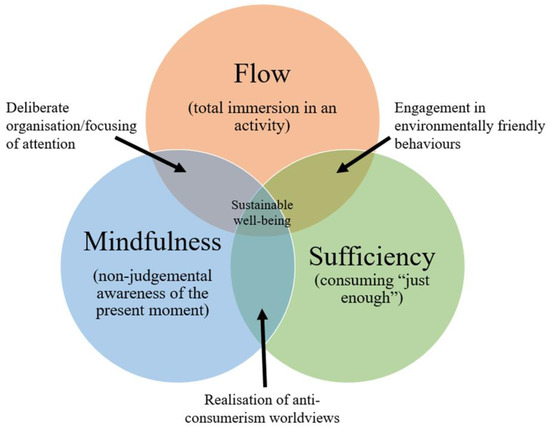
The psychological complexities of wealth reveal a stark truth: affluence does not equate to emotional abundance. The pursuit and accumulation of wealth, beyond the fulfillment of basic needs, often fail to deliver the promised panacea for happiness. Instead, it can lead to a unique set of challenges including isolation, anxiety over maintaining one's fortune, and an existential vacuum when life revolves around material gain.
Strategies for cultivating fulfillment beyond fortune are critical in addressing these issues. They involve nurturing social connections free from economic transactions, engaging in meaningful work that transcends monetary value, and recognizing that self-worth is not tethered to net-worth. It is here where MLM perspectives shine—advocating for societal transformation through collective action rather than individualistic accumulation.
In closing, let us remember that true wealth lies in our ability to forge deep relationships with others, contribute positively to society at large, and find joy in pursuits that resonate with our core values. Money may provide comfort and convenience but cannot purchase purpose or passion. Embracing this can lead us towards a more balanced existence within this material world—one where we measure success not by the weight of our wallets but by the legacy we leave behind.
Summary of the Psychological Complexities of Wealth
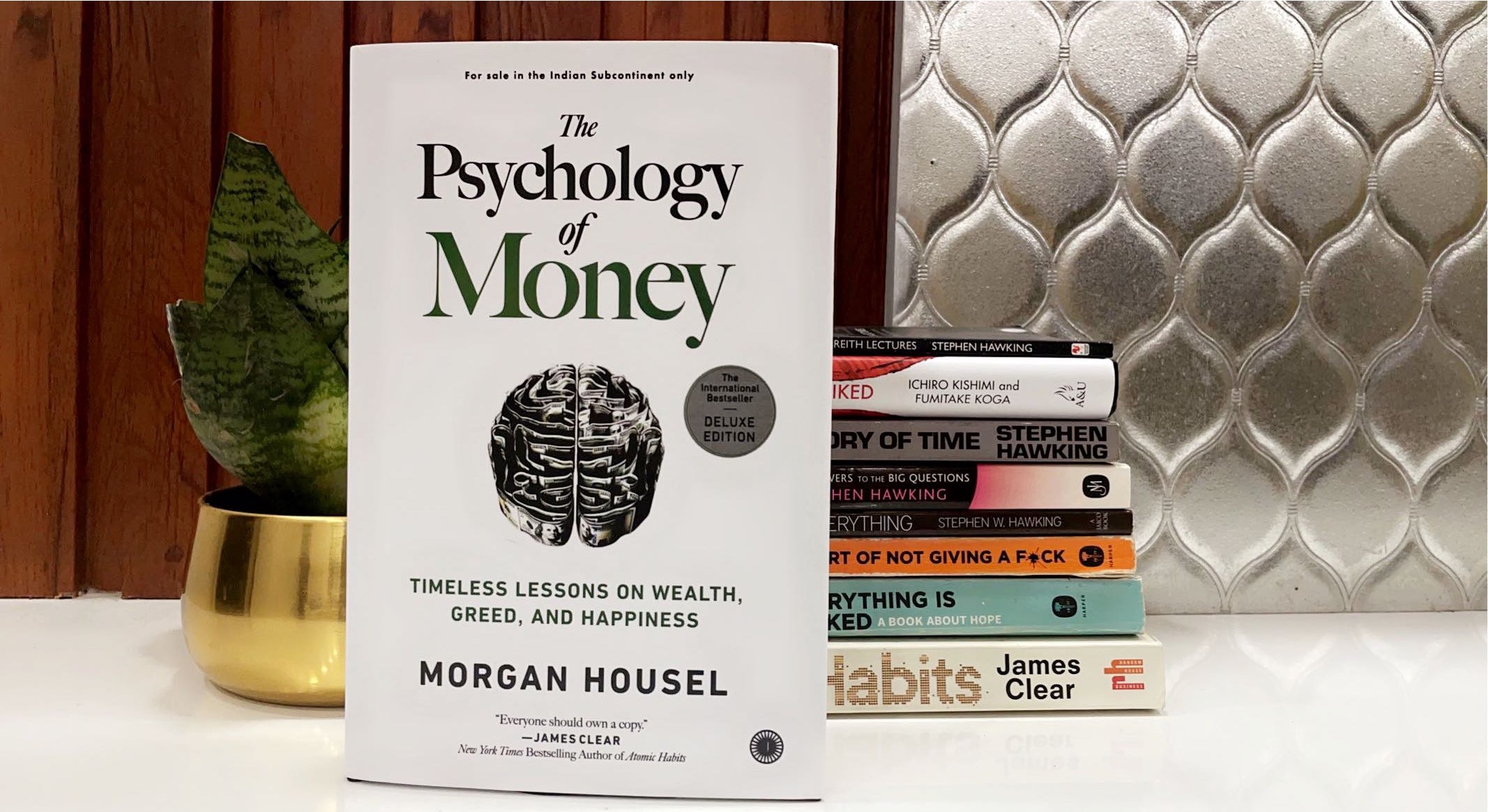
The paradoxical nature of wealth's psychological impact cannot be overstated. While the affluent are cushioned by financial security, their emotional well-being often suffers under the weight of isolation, anxiety, and a perpetual hunger for more. This relentless drive to accumulate can mirror addictive behaviors, where the rush of acquiring wealth becomes akin to a drug—promising elation but delivering an ephemeral high followed by emptiness.
It is within this context that we observe how extreme wealth can distort social relationships and self-perception. The super-rich may struggle with genuine connections as they navigate a world where intentions are often questioned—their affluence acting as both shield and barrier. The resulting social vacuum amplifies feelings of loneliness and detachment from the broader human experience.
Moreover, self-identity becomes intertwined with net worth, fostering existential crises when material success fails to fill deeper voids in one’s psyche. The wealthy grapple with finding purpose beyond their bank statements—a quest that is inherently human yet amplified in the echo chambers of opulence.
In essence, these complexities reveal an urgent need for balance; a recalibration of values where fulfilment stems not from one's portfolio but from meaningful engagement with life’s intangible riches—community bonds, personal growth, altruistic endeavors—and an appreciation for abundance that transcends monetary definitions.
Strategies for Cultivating Fulfillment Beyond Fortune

In the quest for a meaningful existence, one must transcend the confines of material wealth. It is crucial to foster a sense of purpose that is not anchored solely in financial success. Embedding oneself within community initiatives can create a shared sense of belonging and contribute to societal progress, echoing the Marxist ideals of collective well-being over individual gain.
Engaging in philanthropic endeavors offers another avenue for the affluent to connect with humanity on a deeper level. These acts serve as both a means to redistribute wealth and an opportunity for self-reflection on one's role within the broader economic structure, resonating with socialist principles of equity and common good.
Personal growth should be pursued through continuous learning and self-improvement. By embracing education and cultural enrichment beyond capitalistic pursuits, individuals can achieve greater satisfaction and enlightenment.
Moreover, aligning one’s lifestyle with core values allows for an authentic expression of self that money cannot buy. It involves tough choices but paves the way towards mental health as a priority—rejecting consumerist pressures in favor of dignity and simplicity.
Finally, it is imperative that society encourages dialogues around these issues—promoting awareness about the psychological pitfalls of affluence while also advocating for systemic changes akin to Leninist and Maoist philosophies where wealth distribution supports communal harmony rather than individual isolation.
Comments
Post a Comment
Thanks for adding to the conversation!